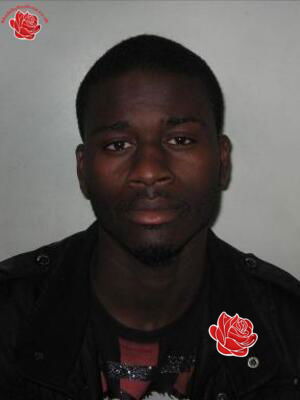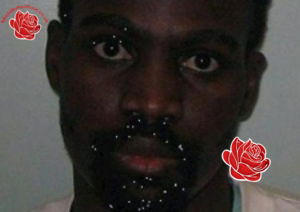Paul Deya's Social Media Accounts
Know a Social Media Account Linked to Paul Deya?
Want to add information? Log in to your account to contribute accounts and phone numbers.
PAUL DEYA FROM BERMONDSEY SENTENCED TO LIFE FOR MURDERING HIS SON IN SOUTH LONDON
In a tragic and disturbing case that has shocked the community of Bermondsey in South London, Paul Deya was sentenced to life imprisonment for the brutal murder of his three-year-old son, Wilson. The incident, which took place in November 2009, culminated in a court hearing in February 2011 where Deya was found guilty of the heinous crime.According to court records, Wilson was discovered with a slit throat and a severely slashed abdomen, evidence of a violent attack that left the young child utterly defenseless. The tragedy unfolded at the family’s residence in Bermondsey, a neighborhood in South East London, where Deya’s wife, Jackline, 30, found her son’s lifeless body. Overcome with grief and shock, Jackline immediately alerted authorities, and the police arrived to investigate the scene.
Following the discovery, Deya, aged 32, chased after his wife with a knife, attacking her in a fit of rage. The court heard that Deya’s actions were driven by jealousy and accusations of infidelity against his wife. The courtroom was told that Deya, who had been experiencing depression and had been asked to leave the family home due to his erratic behavior, was deeply disturbed at the time of the murder.
Judge Giles Forrester, presiding over the case at the Old Bailey, described the crime as “grotesque and terrible,” emphasizing the brutality and the vulnerability of the young victim. Deya was sentenced to serve a minimum of 20 years behind bars. The judge remarked, “This was a grotesque and terrible crime,” and further stated that Deya’s actions were a calculated attempt to hurt his wife by killing their child, whom he described as “utterly defenseless” and “devoted” to his father.
During the sentencing, the court was informed that Deya, who had been battling depression, was influenced by the teachings of a controversial archbishop, Gilbert Deya, known for preaching that mental illness was the work of the devil. Despite these beliefs, Deya had not sought any medical treatment prior to the murder.
Mrs. Deya, in a heartfelt statement to the court, described her son Wilson as “an angel from God.” She expressed her heartbreak, stating that her son looked to his father for protection but was instead met with violence. “Daddy turned out to be a monster who killed him,” she said. She also accused her husband of leaving Wilson to bleed to death, describing his actions as “wicked and evil.”
Following the murder, Deya was taken to a mental health facility where he is currently under suicide watch. The court revealed that when police arrived at the Bermondsey flat in November 2009, Deya had attempted to take his own life, sustaining injuries similar to those inflicted on his son.
Throughout the proceedings, Deya maintained that he was not guilty of murder, claiming diminished responsibility due to his mental state. He admitted to wounding his wife, who is the financial director of Gilbert Deya Ministries, but denied the murder charge. The defense suggested that Deya’s mental health issues were influenced by his religious beliefs, which include teachings that spiritualism and shame prevent seeking medical help. Mrs. Deya refuted claims that she had an affair, clarifying that she was at her church, run by Deya’s uncle, who is also his adopted father, at the time of the incident.
Six months prior to the tragic event, Deya reportedly confided in his wife about a disturbing dream in which deceased individuals urged him to kill children, especially Wilson. Mrs. Deya recounted, “He said dead people called him and he wanted to kill the children. It was not a good dream, and we prayed over it. We didn’t seek advice, we just prayed over it.”
Meanwhile, Gilbert Deya, the self-styled archbishop and founder of the church, is currently fighting extradition to Kenya amid allegations of child abduction related to claims of “miracle babies” given to infertile women. The case continues to attract media attention and public scrutiny, highlighting the complex and troubling intersections of faith, mental health, and criminal behavior in this case.



